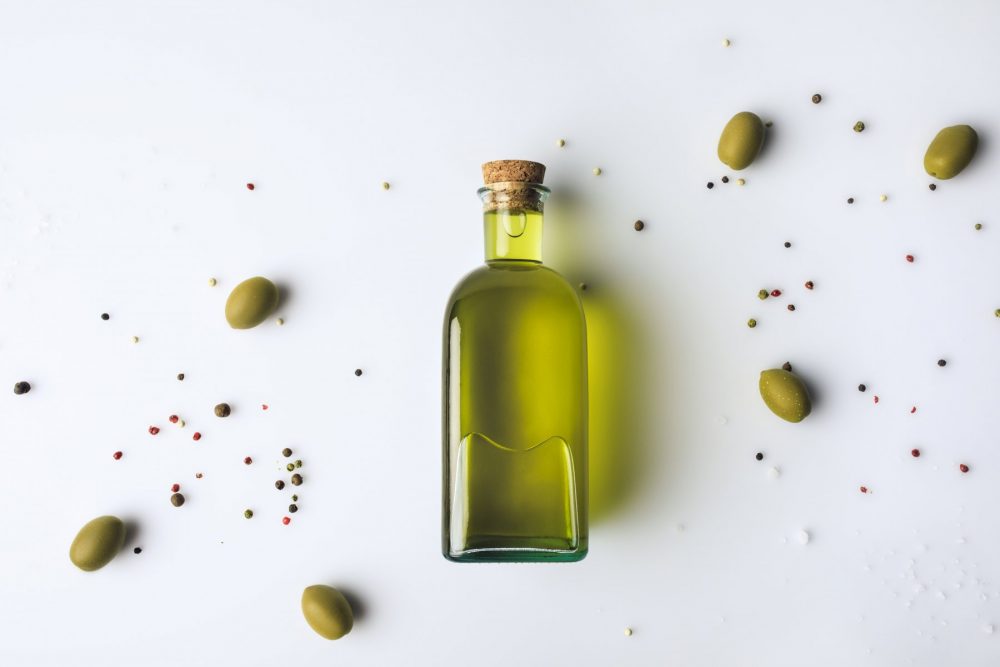Olive oil is a liquid oil obtained from olives, a traditional tree crop of the Mediterranean basin, and the oil is extracted by pressing all the olives. It is often used to make foods, fried foods, or salad dressings. Here are the best olive oil benefits for health, hair and skin.
Olive oil has been an integral part of Mediterranean culture for thousands of years, since ancient Greeks and Romans, and is still the most popular cooking oil in the region today. In fact, nutritionists believe the Mediterranean basin is home to some of the oldest inhabitants. That is why their daily diet is rich in healthy fats from olive oil, nuts and fish oil.
Compared to other cooking oils, olive oil has the unique ability to fight chronic and degenerative diseases due to its high percentage of monounsaturated fatty acids (MUFAs). ) found in all the qualities and strong polyphenolic compounds found in Virgin Olive oil. So eating olive oil has been linked to everything from improving your cholesterol levels to improving your mood and supporting your bones.
What is olive oil good for?
However, olive oil is rich in monounsaturated fatty acids, accounting for around 75% of its volume. When replacing saturated fatty acids, monounsaturated fats help lower “bad” LDL cholesterol. The health benefits of olive oil are attributed to its antioxidant and anti-inflammatory properties.
What is olive oil made of?
Olive oil is a liquid oil obtained from olives (fruit of the Olea europaea family), a traditional tree crop of the Mediterranean basin, and the oil is extracted by pressing all the olives.
Why olive oil is bad for you?
After a meal high in fat, including a rich source of olive oil, the level of cholesterol in the blood increases, which can damage blood vessels and promote heart disease.
Olive oil benefits for hair
Olive oil can penetrate the hair shaft and retain moisture, adding softness and strengthening to the hair. The shine that comes from olive oil can be due to the oil that makes up the cuticles on the outside of the hair. You may want to do some experimentation before finding a routine that meets your needs.
Olive oil benefits for skin
Olive oil is rich in vitamins and antioxidants and has been linked to improving skin moisturization, prevent aging, and reducing sun damage. Olive oil can be applied on its own to the skin or as part of a skin care product such as a cleanser or lotion.
Health Benefits of Olive Oil
Here are the best research based olive oil benefits for health:
Reduce risk of certain cancers
No food is the magic bullet for cancer prevention, but eating olive oil may be one of the reasons Mediterranean countries will have lower cancer rates. A recent study from 2020 found that extra virgin olive oil contributes to changes in the gut linked to the prevention of leukemia. And previous studies have shown that women who consume olive oil are more likely to have a lower risk of gastrointestinal and thyroid cancer. Many types of olive oil have been shown to have anti-cancer properties, including oleic acid, hydroxytyrosol, oleocanthal, phytosterols, and squalene.
Also Read: Mediterranean Diet – A Meal Plan
Boost bone health
Different but true category: A 2018 study found that women who consumed the most olive oil had increased bone density. This finding is true even after considering that female bones produce less calcium and vitamin D. The body can make osteoclasts cells that break down bones, but scientists believe that the polyphenols in olive oil can activate processes that prevent bone damage and promote bone formation.
Boost Immune system
Whether you are trying to avoid the cold, prevent your risk of cancer, or control your autoimmune disease, your immune system is very important. And it turns out that the immune system really likes healthy fats! A 2015 study found that consuming 3 tablespoons of extra virgin olive oil per day stimulates the growth and activation of T cells, the body’s immune system that fights various pathogens around the country. On the other hand, eating corn oil, butter, or soybean oil doesn’t have these benefits either. The levels of EVOO of polyphenols and MUFAs should be maximized. Some researchers also believe it may be beneficial in helping prevent infection with COVID-19.
Helps you in losing weight
Because olive oil helps stabilize blood sugar, it can help reduce food cravings that can lead to overeating and weight gain. Another reason to shed fat is instead of EVOO and vinegar! A 2018 study found that obese women who added 1 tablespoon of olive oil to their breakfast lost more body fat and had higher blood pressure than women who added soybean oil for them at breakfast. Previous research has shown that eating more olive oil in the Mediterranean diet does not lead to weight gain.
Of course, olive oil is also a high calorie food, so it is best to use it to replace the low fat content in your diet.
Supports Mental health
The brain-nourishing nutrients in olive oil also help you look good. In fact, attractive studies from 2010, 2017 and 2019, all supporting studies suggest that a Mediterranean diet can help treat depression! In one study, 30% of participants went into remission for mild depression after a 12-week Mediterranean diet that included olive oil. Other research shows that the fatty acids in olive oil support the central nervous system, help blood vessels function better, and increase the level of serotonin, a thought-promoting neurotransmitter.
Rich source of polyphenols
Extra virgin olive oil is particularly rich in polyphenols, natural bioactive compounds with antioxidant properties found in foods such as fruits, vegetables and nuts. Polyphenols are good for your health, in part because they fight oxidative stress (a type of stress in the body that causes lipids, proteins and DNA to cause heart disease, cancer) diabetes and dementia. The two main polyphenols found in olive oil are hydroxytyrosol and oleocanthal, which have antioxidant, anti-inflammatory, cancer fighting, neuroprotective and antibacterial properties.
Prevent diabetes
Healthy fats are an important part of the diet for anyone trying to prevent or control type 2 diabetes. Lower blood sugar to less than 16% risk of diabetes. All fats help slow the absorption of glucose into the bloodstream, which may help stabilize blood sugar levels, but studies show that oleic acid, a monounsaturated fat, is essential in olive oil, especially for protect insulin. On the other hand, saturated fat promotes inflammation and can damage the insulin-producing cells in the pancreas, the insulin-producing cells.
Healthiest oil for cooking
According to popular belief, EVOO still has an average smoke pressure of 350⁰F to 410⁰F, but the smoke does not interfere with the safety of cooking oil. A 2018 study found that extra virgin olive oil is the more stable and destructive cooking oil than conventional cooking oil. This means that you can use extra virgin olive oil for frying, sautéing, baking and frying. Formed from thermostable MUFAs and polyphenols, olive oil resists heat which causes oxidative stress and leads to the degradation of free radicals. But what makes olive oil different from cooking oil? A 2015 study found that vegetables such as tomatoes, eggplants and zucchini in olive oil added to the antioxidant properties of these vegetables!
Fights with pain and inflammation
Olive oil can be a great addition to your diet if you have arthritis or other chronic conditions. For example, monounsaturated fat has been shown to reduce C reactive protein, a factor that has been implicated in diseases such as rheumatoid arthritis. Additionally, virgin olive oil also contains oleocanthal polyphenol, which has anti-inflammatory properties similar to ibuprofen. Some experts believe that a regular diet containing oleocanthal may reduce the risk of inflammatory diseases.



